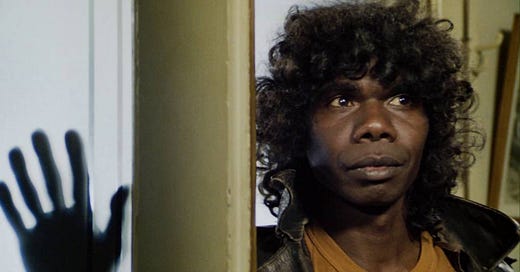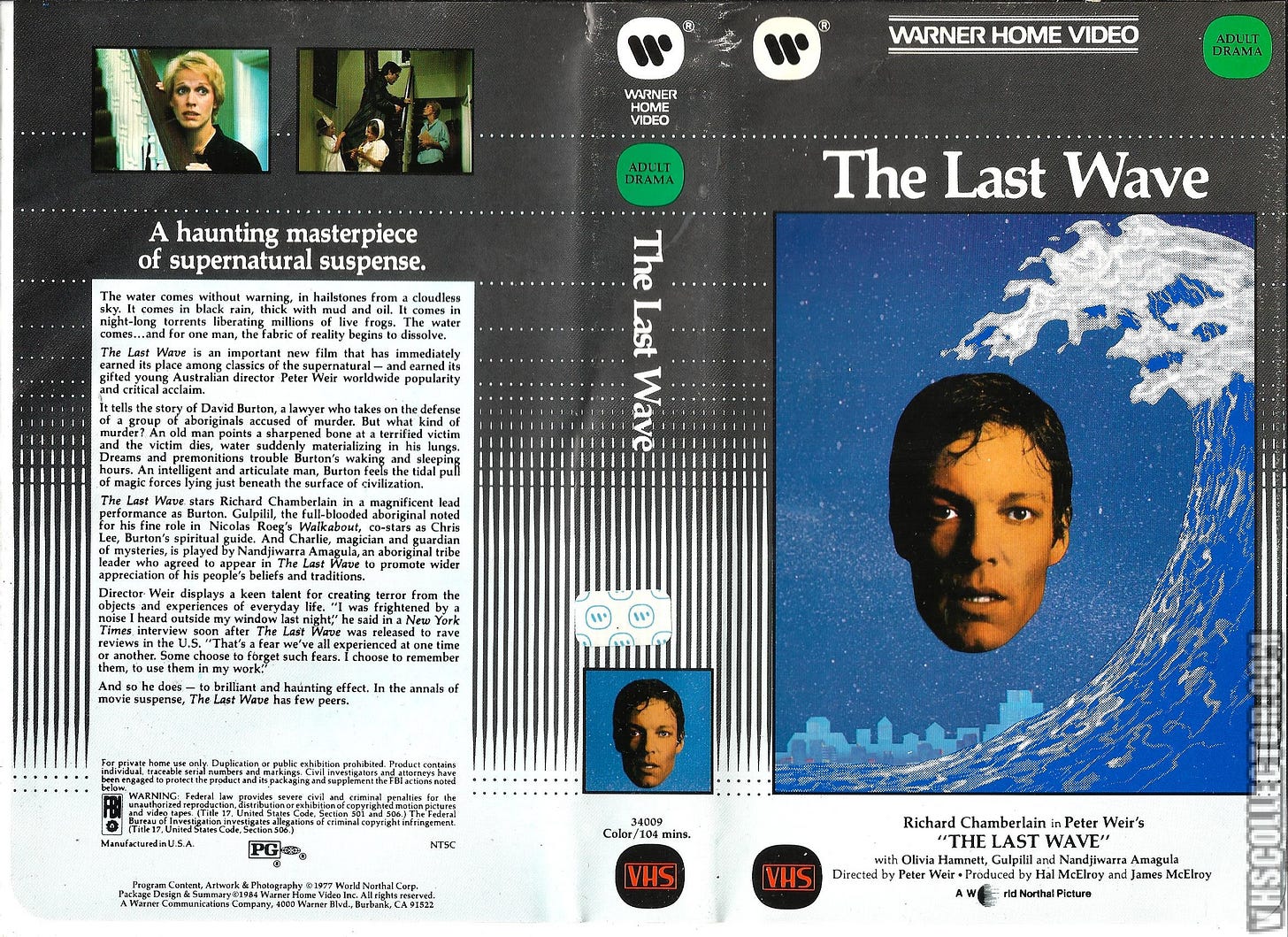Hello! Thank you for signing up to, or stumbling on, this no-news-newsletter written by me, Ashley Clark. If you do choose to subscribe—and it’s free—you’ll receive bulletins about whatever’s on my mind: usually some combination of art/film/music/literature/football. If that sounds good, hit the button!
There was a bloke coughing his lungs up with oddly rhythmical precision on the train I was on one morning this week, so of course my mind went straight to Scotch’s 1985 Italo Disco classic “Disco Band”, which literally uses a man’s hacking cough for an opening beat and, later, for some ambient coloring, the sound of (presumably) the same man clearing his throat. The rest of the song is a snarling, multi-layered synth beast armed with a ramrod straight but slightly skittering martial beat, and passionately-sung nonsense lyrics (“Bay-beh, you’re my really disco band!”) It’s fantastic. If you don’t know what Italo Disco is, here’s a good primer on the genre over at Bandcamp.
I watched a remarkable film for the first time recently: The Last Wave (1977), directed by Peter Weir, who was a key figure of the Australian New Wave, and who would later forge a prolific and impressive career in Hollywood (Witness, The Mosquito Coast, The Truman Show, to name just a few.) The Last Wave is available to stream in many places.
On paper, it’s a drama about a freshly energized, if not quite crusading white Sydney lawyer, David Burton (Richard Chamberlain), who takes on the defense of a group of Aboriginal men—including one played by the late, very great Yolŋu actor David Gulpilil Ridjimiraril Dalaithngu—accused of killing one of their own crew. On screen, however, it’s an inscrutable, frequently terrifying tangle of meteorological intrigue, existential despair, and deeply earnest (though vaguely dubious) engagement with white liberal guilt and Aboriginal religio-cultural beliefs. Chamberlain’s character is increasingly consumed by the historical sins of his people upon Australia’s native population, but also becomes convinced of his status as a spiritual emissary for reparative justice, like some kind of turbo-ally. Is it all in his head? Or are we really in the Dreamtime?
The Last Wave is a film of rampant contradictions: it’s at once murderously serious and faintly ludicrous; narratively diffuse yet somehow ruthlessly singular in tone—no surprise considering this film is made by Weir, whose Picnic At Hanging Rock (1975) still freaks my nut out to this day. The opening sequence creates an off-kilter spell that never abates. A remote school is ravaged by a freak hailstorm (massive blocks of ice!), and the children are creepily fascinated instead of scared. “Can you hear, can you hear the thunder?” I thought to myself. “You’d better run, you’d better take cover.”
There is zero chance that a film this knotty, this purely strange, would be made today—you could easily imagine it getting ripped to pieces on Twitter for being “problematic”—and it’s all the better for it. It’s a commendably risky piece of work, and also the first film in ages to give me actual nightmares. You’ve been warned.
Thank you for reading. Please consider subscribing to this newsletter if you’ve yet to do so, or, if you have, spreading the word. I appreciate it!





